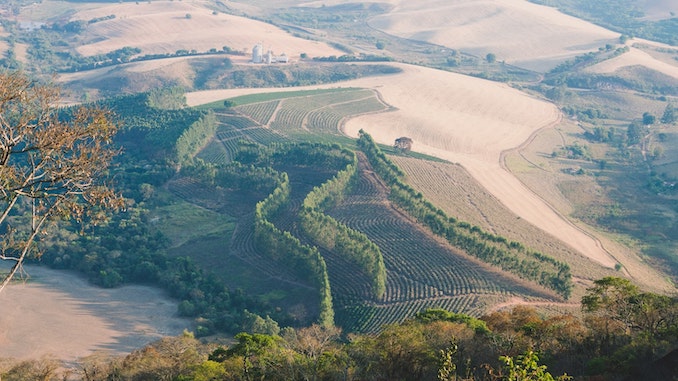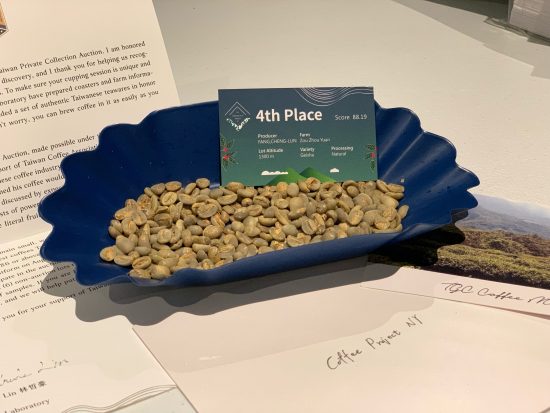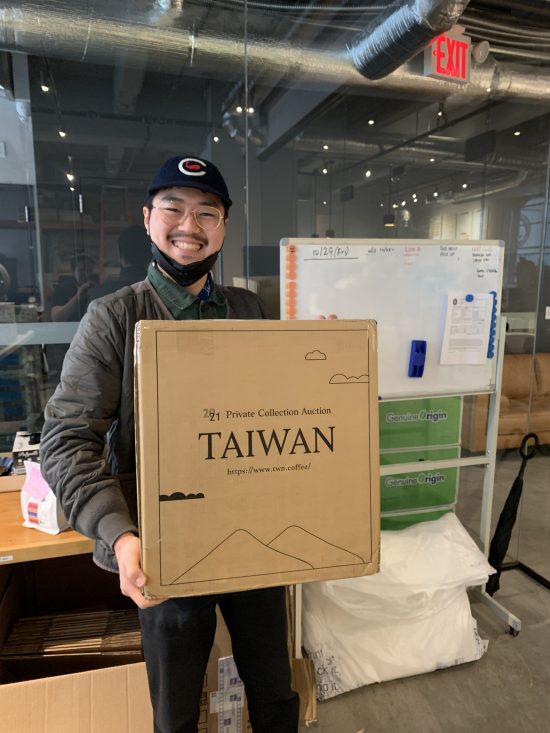
In addition to churning out coffee competition champs, the country is enhancing its specialty-coffee production.
BY EMILY JOY MENESES
SPECIAL TO BARISTA MAGAZINE ONLINE
Cover photo by Nguyen Tong Hai Van for Unsplash
Earlier this fall, we explored Taiwan’s history of coffee production, beginning with the arrival of coffee via the British and Japanese at the end of the 19th century. Today, we’re digging deeper into modern coffee production in Taiwan, and what to expect as a café owner, roaster, or consumer when it comes to roasting, brewing, and tasting it.

On the Competition Level
To start, we spoke to Scott Conary, an industry veteran who has been working in Taiwan for the past several years and served as the head judge for the Alliance for Coffee Excellence/Cup of Excellence Taiwan Private Auction, which he describes as a great insight to current coffee production on the island.
“Originally, I came to Taiwan to organize for WCE (World Coffee Events) … but also to visit with a friend, Silence Huang, who owns Ugly Duckling in Taipei,” Scott shares. “(I got to) learn about the amazing coffee scene that was being built from the ground up in a very short amount of time.”
Scott first thought to host the ACE/COE Taiwan Private Auction after taking part in a developmental program, where he was able to evaluate coffee samples from the surrounding areas.
“My good friend Joe Hsu, who owns Orsir Coffee in Taichung City, is also a COE judge, has served on the ACE Board, and worked with me as a judge for WCE. He’s hosted programs that I’ve been returning for even more often … like the ACE/COE SET (Sensory Education Training) program,” Scott explains. “This is a three- to four-day program that serves as a developmental program for coffee professionals, which focuses on sensory development and cooking skills. It was here that I first really discovered the potential quality of the coffee being grown on the island, as students of the class were also sometimes producers and would bring me samples to evaluate. Fast forward to 2021, and there’s a joint effort of Taiwan Coffee Labs and the Taiwanese government with ACE to do that very thing, (focus on growing quality).”
Understanding Taiwan’s History of Quality First
When asked what he believes separates Taiwanese coffee from other varieties more widely offered in the Western world, Scott shines a light on the country’s quality-focused approach that stems from its prominent tea culture.
“The specialty-coffee world knows of Taiwan as the country with the highest density of home roasters, and maybe they know it as the birthplace of several WCC world champions—but relatively few know that Taiwanese farmers have been working to ensure they’re creating a quality product high in the mountains, in the center of the island,” he explains. “They’ve accumulated knowledge, like many coffee-growing cultures, but they approach it very differently due to their precise knowledge of tea agriculture and horticulture.”
“The tea culture (led to) consumers that appreciated high quality and were willing to pay for it,” he continues. “This helped farmers who wanted to experiment with varietal and process, because they could do it in smaller, less risky volumes—and, if successful, could still gain a significant price for their efforts and create a demand for the future.”
Scott describes Taiwanese coffee flavor profiles as having anything from juicy tropical fruit flavors, to intense floral notes, to unique layers of umami and spice.
“The very first private collection auction, supported by ACE, is a great first step in introducing to the world how great Taiwanese coffees can be,” he shares. “This island has high elevation in its mountain ranges and diverse microclimates supporting a range of coffee varietals and processes. In the hands of producers who are already experts in refining the details of world-renowned tea, these coffees shine through both in overall quality, as well as unique flavor profiles.”

Roasting and Cupping Taiwanese Coffee With Coffee Project New York
Chi Sum Ngai of Coffee Project New York also shared her experience with roasting and cupping Taiwanese coffee—a natural-process Gesha that she and her team sourced from the Coffee Quality Institute.
“So far, we’ve only roasted the samples on Ikawa,” she says. “It’s a natural-process Gesha coffee and therefore, I plan to profile it with less heat and longer roasting time—optimal for bringing out the green quality complementing the sugar browning.”
Sum also says that she’s adamant about sharing more Asian coffees with her customers. “In fact, we have two batches of coffee on the way to Coffee Project: a natural anaerobic Indonesia from Flores Manggarai and a honey process from Yunnan,” she explains. “This is the second year that we’re carrying this coffee from Yunnan, and we hope that this relationship can go on. Other than those coffees, I’m also trying to source coffee from Vietnam.”
Although African, South American, and Central American coffees tend to take center stage in the coffee world, it’s clear that Asian coffees—especially those from Taiwan—have a strong place in the future of the industry. Click here to read more about the Taiwan Coffee Auction, and stay tuned for more spotlights on Asian coffee-producing countries.
ABOUT THE AUTHOR
Based in Los Angeles, Emily Joy Meneses (she/her) is a writer and musician passionate about culture and collective care. You can regularly find her at Echo Park Lake, drinking a cortado and journaling about astrology, art, Animal Crossing, and her dreams. Explore her poetry, short stories, and soundscapes on her website.

